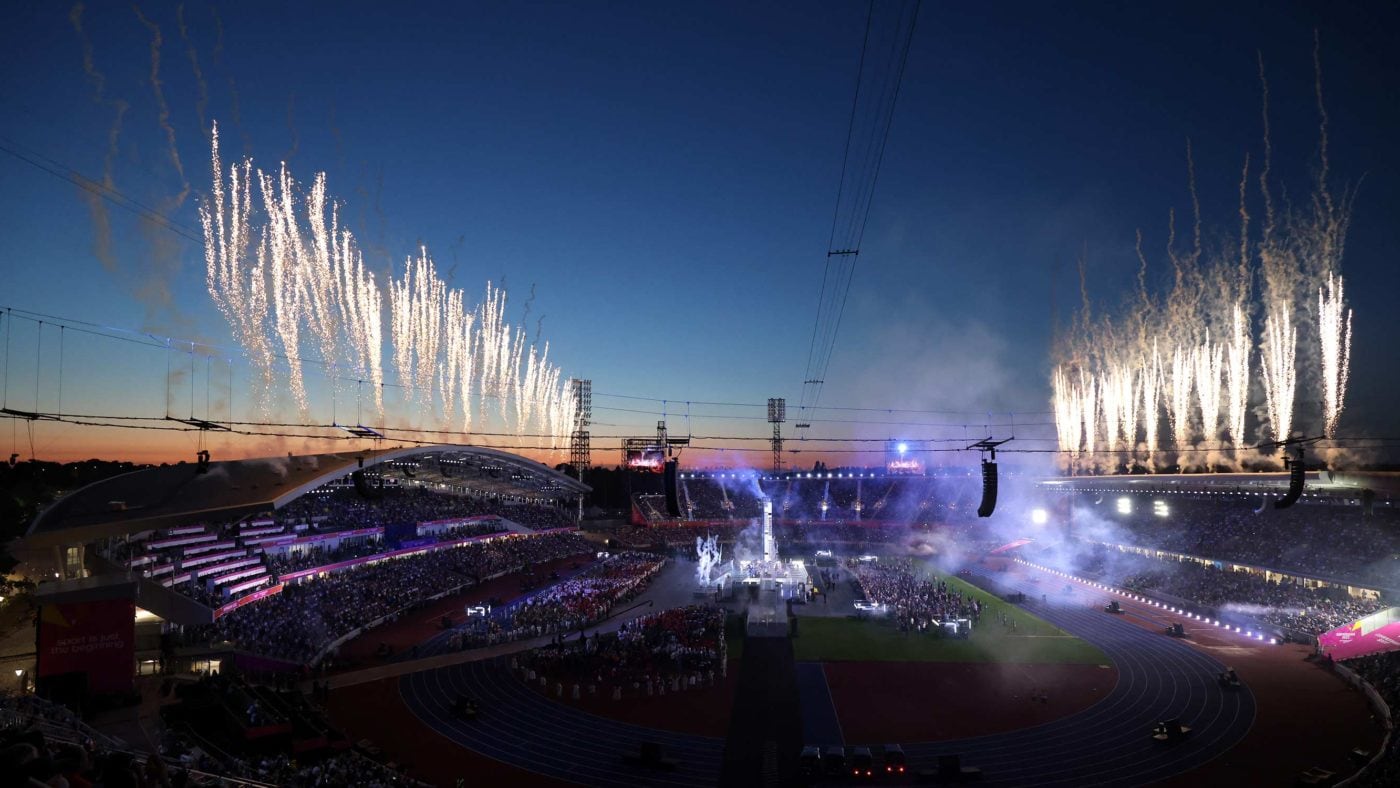Birmingham bid the Commonwealth Games farewell in style on Monday night. The closing ceremony told the story of the city’s Commonwealth links, including the contribution of the Windrush generation onwards to rebuilding the industrial heart of post-war England.
The core theme was West Midlands pride in its many musical contributions. The nostalgic sugar rush of Dexys Midnight Runners and Musical Youth topping the bill, fully 40 years after ‘Come on Eileen’ and ‘Pass the Dutchie’, may have got lost in translation across the 55 nations on several continents. Goldie and Beverley Knight donned the Old Gold of Wolverhampton Wanderers with panache, as the ceremony mashed together ska and grime, disco glamour, bhangra and heavy metal.
This has been a summer to show that events matter. Some 23 million of us took part in celebrating the Queen’s Platinum Jubilee – 4 out of 10 of the population. The national TV audience of 17 million for the women’s Euros football final gives women’s sport a new and bigger platform, profile and status from which to build than It has ever had before. My ten-year-old daughter and I followed the Lionesses to Brighton and Southampton, before seeing them win the tournament from the rafters at Wembley stadium.
The power of events begins in the moment – creating magical memories for those of us lucky enough to be there. Moments of national communion that still bring tens of millions together feel more important, precisely because they are scarcer, in this era of unlimited personalisation and choice.
Are these happy but ephemeral occasions or can they create a lasting impact?
Left to their own devices, major events will often link us with ‘people like us’. If we want them to cross social divides too, that may take more intentional planning. In tougher economic times, showing that events are more than a distracting party will be more important when public resources are involved. A new British Future report, published today as part of the Spirit of 2012 ‘Power of events’ inquiry, looks at the lessons from recent events and how to apply them to the opportunities of the future.
Hosting major events has a particular potential for impact. The scarcity of something that happens once in a generation makes it special to be there and may widen a sense of ownership in the pride, or anxiety, about whether it will go well. As Birmingham has just shown, hosting international guests can trigger new conversations at home, about what we want to say about who we are and where we are going. There have been many first-time volunteers at these major events too.
But not all events achieve their ambitions The Dome was an expensive failure, though it left a sustained legacy in North Greenwich. Several key governance lessons – particularly protecting creative content from political control – have helped later events, like London 2012 and the City of Culture programme, get it right.
An effective strategy for how to make events matter can be applied to new opportunities too.
The UK will be the unexpected host of next year’s Eurovision song contest – with Ukraine unable to host the contest and after Sam Ryder’s strong second place countered public scepticism about the UK’s prospects. This year’s Eurovision was – after the Lionesses’ cup final victory and the Jubilee pop concert at the Palace – the third-biggest national TV audience of the year so far. The UK has the biggest Eurovision TV audience anywhere in Europe.
The BBC will be co-producing the event with its Ukrainian broadcast partners. A powerful way to express that sense of UK-Ukraine solidarity would be to make this the “Welcomers’ Eurovision”. Over 65,000 Ukrainians are currently being hosted by British people. Eurovision should be a chance to celebrate both guests and hosts in the Homes for Ukraine scheme – including by giving many of them priority for tickets to the contest, and hearing their stories during the Eurovision build-up.
Many cities across the UK are hoping to host the contest – with Leeds and Liverpool, Birmingham, Glasgow and Newcastle all hoping to be on the shortlist announced this morning. The 2023 Eurovision weekend could become an opportunity for local mayors and civic leaders in the host city and beyond to hold Eurovision fan festivals, celebrating UK-Ukraine welcoming links and the broader contribution of Europeans to British society.
A Welcomers Eurovision would be a chance to show that Britain’s social and cultural connections with Europe persist long beyond the political arguments of a referendum held seven years earlier – a distant memory before the 18-24 year olds, who make up one significant part of the Eurovision fan base, were even adults. And, potentially, a feel-good moment to demonstrate the power events to bridge divides.
Click here to subscribe to our daily briefing – the best pieces from CapX and across the web.
CapX depends on the generosity of its readers. If you value what we do, please consider making a donation.


